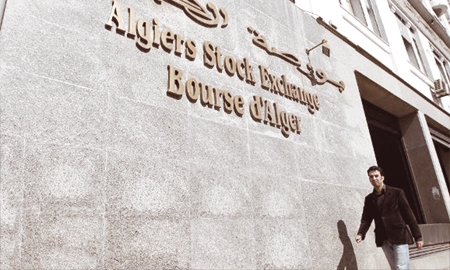The positive turnaround in Algeria’s economic position was evidenced earlier this year when the IMF asked the North African nation for $500 billion in financial support to help the organization fund loans for emerging markets and developing countries. The request highlights Algeria’s transition from an emerging to an upper-middle-income economy, turning the country from an IMF borrower in the 1990s to it now being a net lender.
With currency reserves of around $205.2 billion, according to the latest IMF report, Algeria has gone from being a bankrupt country to having enough in reserve to cover its operating costs for five years. This is in stark contrast to the 1984-94 period, when the country had to get by with less than a month’s emergency reserves in hand.
Algeria has the 10th-largest stocks of natural gas in the world and is the sixth-largest gas exporter. Hydrocarbon revenues have long formed the backbone of the economy, accounting for around 60% of budget revenues, 30% of GDP, and more than 95% of export earnings. The country’s external debt is also extremely low, at about 2% of GDP. In 2011 the Algerian economy grew by 2.6% and inflation was 3.9%.
According to the Minister of Finance Karim Djoudi, Algeria has been relatively unscathed by the recent global economic downturn due to the secure management of the country’s foreign reserves, diverse investments in different currencies, ensuring liquidity in the financial system to strengthen and raise Algerian banks’ capital levels and increase their capacity for commitment, and also enforced limitations on the short-term borrowing of banks on the foreign market.
“Although it is not over, we can say we have navigated safely through the reefs of this crisis and we have brought growth to the domestic market. Through our strong domestic demand, in 2011 almost $46 billion were spent on imported goods,” says Mr. Djoudi.
“We have also created entrepreneurs who, in my opinion, have the capacity to both meet domestic demand and also to position themselves in external markets.”
In banking, capital investment has also seen a boom. “We created 48 regional investment funds that each have an amount designated for small businesses. Often, if young people from universities or professional training schools want to start a small business, they need to have immediate capital available. These funds may be used to create a multitude of small entities with a quick turnover,” says Mr. Djoudi.
In addition, the government has set up a national investment fund that is working on various major projects and is involved in public-private partnerships.
Bank penetration is on the rise, helped by new branches, banking education initiatives and the modernization of payment methods.
“We implemented an electronic mass payment system in a few areas of the territory a few years ago, but at the moment there is still a need to learn how to use this technology. People have a strong attraction for cash money, but the mentality is gradually evolving,” says Mr. Djoudi.

0 COMMENTS